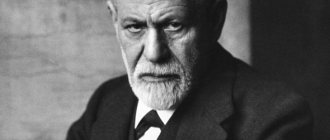Our life is full of stress. Emotional stress has become a daily reality for many people.
Every day, from the alarm clock to going to bed, we are affected by many stress factors. Traffic jams, problems at work, obligations to creditors, children's poor performance at school, conflicts - this list can be continued endlessly, and everyone will have their own. Therefore, the question “How to relieve emotional stress” is more relevant today than ever.
The fact that emotional tension and stress have become a companion of modern life is completely abnormal. This must be dealt with, otherwise health problems will arise. There is no doubt about it.
To correct the situation, there are both simple methods that do not require a trip to the doctor or the use of medications, as well as heavier artillery. In this article we will discuss both approaches.
What is emotional stress and why does it occur?
Emotional tension (aka stress) is our body’s reaction to difficult and uncomfortable situations. The internal secretion organs produce hormones that bring the body into a state of tone, to protect against the irritants that caused such a reaction.
Thanks to stress, we adapt to tense moments in our lives, be it conflicts, problems at work, accidents and other difficult circumstances in our lives.
Uncomfortable situations surround us since childhood. This is an integral part of the socialization of children in society, and then in adulthood. And the older we get, the more responsibility falls on our shoulders, and with it, more stress and anxiety.
Well, one can only sympathize with those whom their parents protect in every possible way, protect them everywhere and obsessively help them. Such children grow up weak and unable to cope with the difficulties of adult life.
Symptoms
With nervous tension, symptoms do not appear immediately - signs of muscle neurosis appear in response to a chronic, prolonged stay in a state of stress. At the beginning, people notice periodic, local tingling in a certain part of the body, or numbness in it. With this “bell”, muscle overstrain makes itself known. With timely provision of medical assistance, it is possible to quickly cope with such a health disorder.
If the psychological state does not improve - the situation remains emotionally unstable and difficult for a person, then emotional tension is transformed into muscle tension. Its symptoms:
- myofascial pain – a person accurately indicates the most problematic area;
- burning with tingling gradually increases in intensity of manifestations;
- the level of anxiety and nervous excitability increases;
- when the neck muscles are overstrained, headaches appear - diffuse, dull;
- various problems with sleep appear - with falling asleep, or intermittency, as well as a feeling of weakness in the body in the morning;
- if the facial muscles become tense, then facial expressions are distorted - involuntary twitching of its different parts;
- on the part of the cardiovascular system, manifestations will be in the form of tachycardia or cardialgia - pain in the heart muscle when muscles tense in the diaphragm area.
In a severe mental state, tension in the head with neurosis alone does not end the matter - convulsions and epilepsy form. Treatment tactics will require a comprehensive and long-term approach.
Types of Emotional Stress We Face
Stress is a load on the nervous system. And everyone experiences it in their own way. It depends on the person’s temperament, personal attitudes and resistance to life’s difficulties.
To summarize, we can distinguish 3 types of nervous tension:
- Lethargy.
Typically, this type of behavior manifests itself when a person has not had time to adapt to the current situation and cannot accept the new challenge that life has thrown at him.
- Change of behavior.
A person may distance himself from acquaintances, friends and family, become withdrawn and not talkative. Such people prefer to experience stress alone.
- Emotional breakdown.
The person cannot stand it and begins to shout and be rude to the people around him. Cholerics are especially susceptible to this behavior.
Psychotechnicians for behavior correction tasks
Decreased arousal
Effectively use:
- distraction and switching of attention;
- goal setting (consider different options);
- physical relaxation;
- psychomuscular and autogenic training;
- breathing exercises for relaxation.
Resource Activation
Effectively use:
- autogenic training for mobilization;
- increased motivation;
- breathing exercises for activity;
- plot performances;
- memories of active emotional states and the situations that caused them;
- mental and sensory stimulation;
- heterosuggestion.
Mental desensitization
Effective:
- presentation of successful behavior;
- self-hypnosis of confidence and neutral attitude towards harmful factors;
- deliberate passive attitude.
Effective:
- listening to music;
- relaxation;
- substitution;
- rationalization;
- fantasy.
Effective:
- meditation;
- suggested dream;
- self-hypnosis for quick recovery.
How to relieve emotional stress
If stress prevents you from sleeping peacefully and you are constantly on edge, then it’s time to deal with it, otherwise health problems will begin.
When choosing methods for relieving emotional stress, you first need to pay attention to its severity. Of course, it is better to contact a good specialist, but in most cases we are faced with everyday stress, and we can cope with it on our own.
Let's start with simple exercises that you can do in the near future.
Correct breathing
This is one of my best and favorite ways to relieve emotional stress.
Have you ever noticed that when we are tense, we begin to breathe less often? Deep breathing in such a situation is just what the doctor ordered. Set aside all your worries for a couple of minutes and focus on your breathing. At least for 5 minutes - you have the right to this in any situation.
Earlier in this article, I wrote about what breathing technique I use. You can use it if you like it, or you can use another one.
Here's another similar method:
- Sit in a comfortable position and straighten up;
- Close your eyes, straighten your back;
- Take a slow, deep breath for 5 seconds;
- Make a delay for 2-3 seconds;
- Then exhale slowly.
Imagine that the air filling your body is water, which with each exhalation washes away all sadness, fatigue and sadness. And in order not to be distracted by extraneous thoughts, you can tell yourself “I am inhaling,” “I am exhaling,” or read affirmations (more on them below).
With the help of breathing, you can relax and get rid of anxious thoughts.
It is advisable to do this exercise for 10 minutes at least 2 times a day.
Sports and fitness
Some people find it easier to relieve emotional stress through physical activity.
If you are one of them, running in the morning, going to the gym or cycling will help you combat stress. You can practice at home - push-ups, pull-ups, abdominal exercises can be performed in almost every home. Well, if you are a sports fan, then it’s not for me to explain to you where and how to do it. You already know this very well.
Calming herbs and aromatherapy
A collection of herbs that you can drink instead of tea will help relieve tension. Herbs such as oregano, chamomile, St. John's wort and motherwort will help you with this. You can add honey, cinnamon, syrup to tea - whatever you like.
And if you light incense or a lamp with essential oil at the same time, the effect will be even stronger.
Hobby
Doing something you enjoy is a great way to relieve stress. And if you decide to learn a new hobby, the results will not take long to arrive. By doing it, you will completely switch your attention to this activity. This way you will get both a new hobby and positive impressions.
Massage and self-massage
This method is wonderful. Now you don’t even need to go to a massage parlor. Dozens of massagers are sold in hardware stores - for the legs, for the neck, for the eyes. Massage chairs, mattresses, covers – the choice is huge. And all this is affordable for most people. Try it!
But you won’t carry a massager with you everywhere, so learning how to massage yourself is still useful.
Switch attention
Distraction is a good way to reduce emotional stress.
To do this, you need to concentrate on something neutral for several minutes. Here are several options - choose the one that suits you:
- Count how many leaves there are on a nearby plant;
- Write down the names of 10 countries you dream of visiting;
- Remember the 20 best moments of the past year (or from childhood);
- Take a minute to list the qualities that you are proud of.
Relaxing treatments
Sometimes you just need to rest. This is especially true for those whose nervous tension is associated with prolonged stress.
In this case, you should go to a SPA salon, bathhouse, sauna, swimming pool, hammam - choose what you like. It is difficult for workaholics to be distracted from work, but here it is worth remembering that the body will still take its toll. If you don't give him a day off, he will take it himself, but for you it will turn into sick leave.
For those who do not like to go somewhere, we can recommend taking baths with essential oils. Add your favorite scent to a warm bath and enjoy your relaxation. It will be great if after your bath you drink tea from the soothing herbal collection that I wrote about above.
Meditation
This is a very good way. I have already written about meditation and mindfulness more than once, so I will not repeat myself.
I will only note that this is an important skill, by developing which you will strengthen not only your nervous system, but will also be able to make up for the missing hours of sleep. I have already heard in many places and experienced myself that meditation allows you to compensate for the lack of those 2, 3 hours of sleep that we always lack.
Yoga
Yoga is a combination of meditation and fitness. During yoga, you need to perform so-called asanas - poses in which you need to stay for 30 seconds or more. During these exercises, you focus completely on your body and how it feels. Thanks to muscle stretching, metabolism speeds up, and here you defeat stress on a physiological level.
Affirmations and self-hypnosis
Affirmations are the repetition of short statements that create positive attitudes.
Here are some examples:
- Every minute I feel better and better;
- Happiness and success await me in the future;
- Everything is good in my life and soon everything will be even better.
You need to come up with your own wording. Keep them short and positive. Avoid negative words and “not” prefixes.
Some repeat prayers; if you are a believer, then this is a good way for you to relieve emotional stress.
Analysis of the situation
For those who like to “make a mountain out of a molehill,” I advise you to analyze the situation by asking yourself the following questions:
- Is this problem really so serious that you should worry about it?
- Is what really matters to me at risk?
- What will I think about this situation 5 years from now? Will she still be important to me?
- What's the worst case scenario? Is it really that scary?
- Can I somehow influence this situation?
The right rhythm of life
If you plan your daily routine in advance, eat properly and sleep for the required 8 hours, then you may not encounter emotional stress, and you will accept most difficulties calmly, without unnecessary worries.
Consequence of nervous tension
The central nervous system has a limited supply of resources. Intellectual and physical activity use these reserves to provide energy to nerve cells. During work, the brain uses not only its own reserves of nutrients, but also other energy sources - oxygen and glucose. The brain needs a lot of energy.
The level of brain load has a limit. When the load exceeds the capabilities, resources are depleted - nervous overstrain occurs.
The upper load limit is an individual indicator. These indicators are different for a scientist, a workshop worker, and a teenager. Therefore, each person experiences nervous tension under different conditions. To avoid overload, you should know the threshold and capabilities of your own nervous system.
The article examines the definition of nervous tension, why it occurs, how it manifests itself, and how to cope with it.
How to relieve emotional stress with psychotherapy and medications
If your situation is serious, you are in long-term depression and the above tips do not help, then you should definitely consult a doctor. He will prescribe treatment and prescribe appropriate medications. Let's talk more about this method of relieving emotional stress.
Psychotherapy
This is still a service that has not received due popularity in our country. But in fairness, it is worth noting that more and more people are starting to use the services of psychologists and psychotherapists. I say this because I myself know 1 married couple and 2 acquaintances who used their services.
Perhaps we don't want to go to a psychologist's office because movies have perpetuated the stereotype of talking for money. This stereotype can easily be destroyed by a real professional who will find the problem that is causing you stress, help you solve it and control the whole process.
Sometimes 2 or 3 consultations are enough to solve the problem.
Medications to relieve emotional stress
I will say right away that all medications should be used only as prescribed by a doctor. I will just list them for general information.
- Classic, potent prescription drugs
Antidepressants, neuroleptics and tranquilizers. They are prescribed exclusively by a doctor and are sold only by prescription. They are used in situations of severe stress.
- Over-the-counter anxiolytics
These products do not have the disadvantages of the previous group. They do not cause addiction and drowsiness, do not dull the reaction and have almost no side effects.
- Herbal remedies
These are the most accessible means for relieving emotional stress. But their effectiveness depends on the individual characteristics of the person.
- Dietary supplements and homeopathic remedies
Scientists have not proven their effectiveness. These drugs act on the placebo principle. But this does not apply to vitamin-mineral complexes, which improve metabolism in the body and thus help fight stress.
Massage for muscle strain
An obligatory component of complex therapy, how to relieve tension in the body during neurosis, is one of the massage techniques. The main movements are soft, stroking pressure. Tapping and pinching are unacceptable. It is recommended to perform the procedures in specialized rooms, where an experienced specialist, even with a cursory examination, will identify tense muscle areas - blocks.
Objectives of massage:
- reduce the influence of the autonomic nervous system;
- restore the patient’s psycho-emotional state;
- improve sleep;
- relieve hypertonicity of muscle groups;
- restore metabolic processes in tissues;
- increase lymph flow and blood circulation.
However, massage for neurosis is not always possible. Absolute contraindications are hyperthermia or severe psycho-emotional disorder with hysteria.
At home, it is permissible to perform self-massage - use soft stroking and pressure to knead the tense muscles of the back of the head, neck, face, and limbs. This will reduce the negative impact of stress and restore the emotional background. Whereas to relax your back muscles, it is better to use the services of a professional massage therapist.










